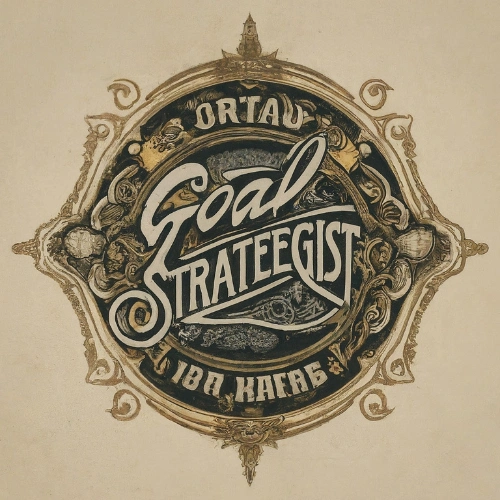Ever scrolled through your social media feed and come across the hashtag #BodyGoals? You’re not alone. It’s a term that’s become synonymous with the ultimate fitness or physique aspiration. But what does it really mean to have “body goals”?
The concept varies from person to person, reflecting individual desires for their physical appearance and health. Whether it’s achieving a toned look, building muscle, or simply feeling more energetic, body goals are deeply personal benchmarks set to motivate one’s fitness journey.
Understanding your own body goals is key to crafting a workout and nutrition plan that aligns with what you’re aiming for. Remember, it’s not about comparison; it’s about setting your sights on a healthier, happier you.
Exploring the Definition of “Body Goals”
When you delve into the meaning of body goals, you’re unpacking a concept that transcends mere aesthetics. It’s about setting targets for your physical form that resonate with your aspirations and lifestyle. These goals often encapsulate the desire to improve one’s physique, strength, and overall well-being. They can vary widely, from wanting to run a marathon to mastering a difficult yoga pose or simply feeling confident in a swimsuit.
Understanding body goals means recognizing that they are deeply personal. Your specific objectives are likely influenced by your unique body type, daily routine, and long-term health considerations. This personalization is key, as it means your goals are tailored to what feels best for you, rather than trying to fit into a generalized ideal.
It’s also important to acknowledge the shift in social narratives around body goals. Once dominated by an often unattainable standard, the dialogue now celebrates diverse body types and abilities. This inclusivity emphasizes that goals should be attainable and sustainable, placing importance on mental health and self-acceptance alongside physical achievements.
In pursuit of your body goals, you’ll likely engage in a variety of fitness regimes and nutritional adjustments. These practical steps reflect your commitment to realizing your ideal body image and health status. Remember, the journey toward meeting your body goals should be as rewarding as the end result, full of learning and self-discovery.
Setting body goals also involves a commitment to consistency. Achievements in physical health and appearance are the product of continuous effort and dedication. It’s not solely about hitting milestones but also about the everyday choices you make—choosing nutritious meals over fast food, or taking the stairs instead of the elevator.
Whether you’re looking to shed pounds, gain muscle, enhance flexibility, or boost stamina, recognizing and respecting your body’s limits is crucial. It’s not about perfection but progress. Every small step taken is part of a larger journey towards better health and happiness. Each person’s path is different, and your body goals are the compass that guides you through your unique fitness landscape.
The Significance of Body Goals in Social Media
In the digital landscape, social media immensely influences how you perceive and set your body goals. Each day, millions of images and videos circulate online, presenting a wide array of physiques that often become the benchmark for fitness aspirations. With the advent of platforms like Instagram and TikTok, showcasing one’s physical transformation or fitness regime has become a norm, making social media a powerful tool in shaping public perception of body goals.
You might notice how trending hashtags and fitness challenges can dictate the conversation around ideal body types. They encourage you to aspire to similar achievements, fostering a community that celebrates progress and fitness milestones. However, amidst the positive reinforcement lies the risk of comparison, which can sometimes skew your body goals towards unrealistic standards. It’s important to remember that behind every picture-perfect post, there often lies hard work, discipline, and perhaps even digital enhancement.
Social media has also given rise to influencers who specialize in fitness and wellness, portraying lifestyles that seemingly align with achieving and maintaining desirable body goals. Their impact on your self-image can be profound, as their large followings suggest a societal endorsement of their physique and lifestyle choices. However, it’s vital to approach such portrayals with a critical mind and to discern between authentic, healthy body representation and potentially misleading, photoshopped imagery.
Diverse Representation appears to be an antidote to the one-size-fits-all approach to body goals. With the push for more inclusivity, social platforms are slowly becoming a space where various body types are celebrated, helping to normalize and appreciate the beauty in diversity. This shift isn’t just about aesthetics; it’s also about recognizing that health and fitness come in many shapes and sizes. As you navigate through your social media feed, be conscious of the content that serves as inspiration and what could potentially derail your personal body goals.
Remember, while the portrayal of body goals on social media can motivate, it’s crucial to anchor your objectives in reality, taking into account your unique circumstances and health needs. Embrace the journey rather than fixating on specific outcomes that often represent a fraction of the story.
Understanding the Personal Nature of Body Goals
When you embark on a journey to define your body goals, it’s crucial to recognize that they’re deeply personal. Your goals are influenced by your genetics, lifestyle, and personal preferences, which are uniquely yours. It’s not just about emulating the physiques you see on social media; it’s about setting targets that align with your individual health and wellness.
Genetics play a significant role in shaping your body. They determine your natural body type, metabolism, and muscle composition. While you can’t alter your genetics, understanding them helps in setting realistic and attainable goals. For instance, someone with a mesomorph body type may find it easier to gain muscle compared to an ectomorph.
Lifestyle choices, including your diet, exercise routine, and sleep patterns, also majorly impact your body’s appearance and capabilities. If you’re continually on the go and prefer quick workouts, your body goals will differ from someone who enjoys long, endurance-based exercises.
Emotional well-being is another critical component. Your mental health influences your motivation and commitment to achieving your body goals. Stress, for example, can lead to comfort eating or skipping workouts, which affects your progress.
Here’s how to personalize your body goals:
- Assess your daily routine to set realistic fitness objectives.
- Create a flexible diet plan that accommodates your nutritional needs and preferences.
- Choose a workout regimen that excites you and fits into your schedule.
- Consider your mental health as part of your overall well-being approach.
Remember, the definition of body goals is as flexible and varied as the individuals pursuing them. Your goals should be tailored to support your overall happiness and health. They should evolve as you progress, ensuring they’re always aligned with your current circumstances and future ambitions.
Setting and Achieving Your Body Goals
When you embark on the journey of setting and achieving body goals, it’s vital to identify your starting point. Reflect on your current physical condition and establish clear, measurable objectives. Whether it’s shedding pounds, building muscle, improving endurance, or simply maintaining a healthy physique, setting specific targets is the first step toward progress. You’ll want to track these goals over time to gauge your development.
To move toward your goals, consider these strategies:
- Create a consistent workout routine that fits into your daily life without causing excessive stress or fatigue. Balancing various types of exercises—cardio, strength training, and flexibility workouts—can prevent burnout and promote overall fitness.
- Adopt a nutritious diet plan that provides the energy and nutrients required for your workouts and daily tasks. Focus on whole foods and manage your portions to align with your body goals.
- Stay hydrated throughout the day, as water plays a crucial role in optimizing bodily functions and aiding recovery from exercise.
- Get adequate sleep since quality rest is critical for muscle repair and overall well-being.
Remember that setting and achieving body goals is not a one-size-fits-all endeavor. You must listen to your body and make adjustments based on your responses to diet and exercise. It’s also crucial to remain patient and persistent; results won’t happen overnight, but with dedication, they will come.
Don’t forget to seek professional advice if needed. A personal trainer or a nutritionist can offer tailored guidance, while a healthcare provider can ensure that your plans are safe and appropriate for your health status.
Finally, keep in mind that your body goals may change as you advance. As your physique transforms, your objectives might shift to reflect new interests or priorities. Stay adaptable, and don’t hesitate to redefine your goals to support your evolving fitness journey.
Understanding that health is holistic, integrating strategies that address not just physical, but also mental and emotional well-being is essential. Fostering a positive mindset and managing stress can amplify your efforts and propel you towards your body goals in a sustainable manner.
The Importance of Individuality in Body Goals
When you set out to define your body goals, remember that individuality is key. Your body is unique, and so are your health and fitness journeys. It’s essential to tailor your goals to fit your individual circumstances, including your body type, lifestyle, and personal health concerns.
Avoid comparing your progress with others as everyone’s body responds differently to exercise and diet. The focus should be on personal improvement rather than competing against someone else’s benchmarks. Your goals should be about enhancing your wellbeing, which is a personal experience, not a one-size-fits-all blueprint.
Incorporating individuality into your body goals includes:
- Recognizing your genetic predisposition to certain body types.
- Understanding your metabolism and how it affects weight management.
- Taking into account personal injuries or limitations that may affect your exercise routine.
Establishing individualized body goals allows you to create a more effective and sustainable plan. It helps you to avoid unrealistic targets and the potential for discouragement that can come from seeking an unattainable ideal.
Remember that your individual goals may involve a variety of aspects, not just physical changes. For example, improving endurance, gaining flexibility, or achieving a better work-life balance could be just as significant as a numerical change on the scale.
Setting realistic, tailored goals will lead to progressive achievements that are both satisfying and conducive to your overall health. By focusing on what’s attainable and right for you, you’re more likely to maintain motivation and remain committed to your journey towards better health and body positivity.
Adapting your mindset to celebrate every small victory along the way will keep you engaged and less likely to succumb to the pressures of idealized body standards. Your body goals journey is yours alone. Embrace it and watch yourself thrive.
Conclusion
Remember, your body goals are unique to you. They’re not about matching someone else’s progress but about embracing your journey toward health and body positivity. Set goals that reflect your individuality and your life’s realities. Celebrate every milestone, no matter how small, as you move towards your ideal version of health. By focusing on personal improvement and realistic objectives, you’ll not only see the changes you desire but also maintain a positive and healthy mindset. Keep your eyes on your own path and let your individual needs guide you to success.


Leave a Reply